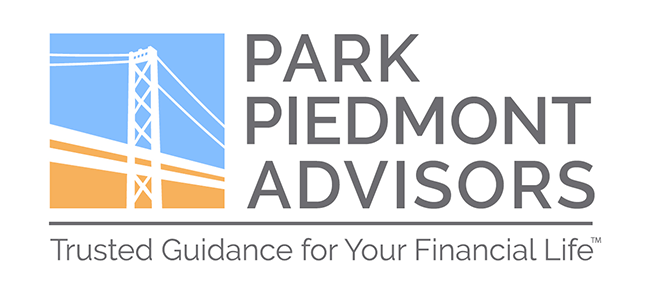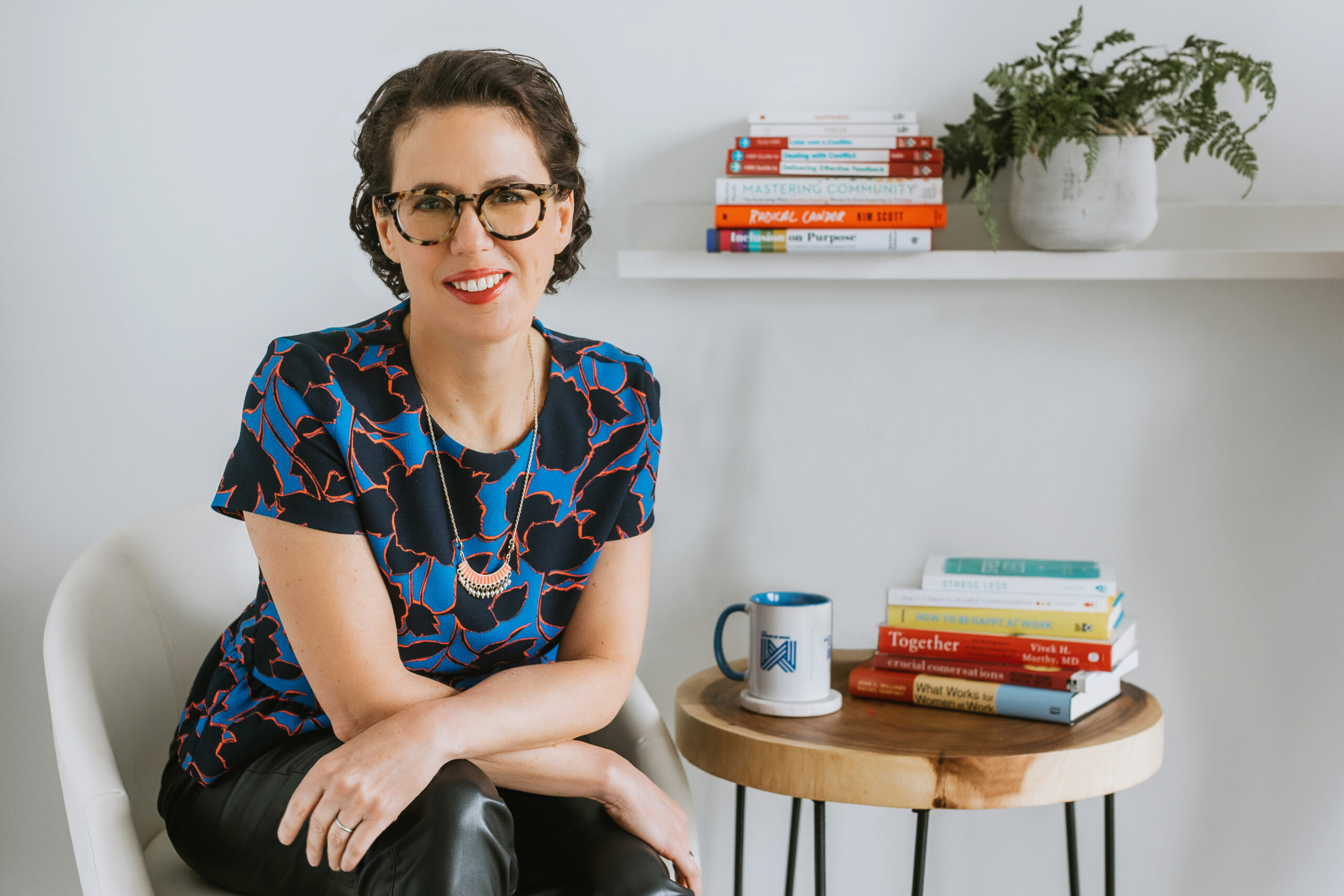Amy Gallo, a client of Park Piedmont, has dedicated her career to helping people improve their lives at work, asking and answering questions such as:
How can we make our work environments and relationships more positive and less stressful?
Amy is a workplace expert who writes and speaks about gender, interpersonal dynamics, difficult conversations, feedback, and effective communication. She is the best-selling author of Getting Along: How to Work with Anyone (Even Difficult People) and the HBR Guide to Dealing with Conflict, as well as hundreds of articles for Harvard Business Review. For the past four years, Amy has co-hosted HBR’s popular Women at Work podcast, which examines the struggles and successes of women in the workplace.
Amy is frequently sought out by media outlets for her perspective on workplace dynamics, conflict, and difficult conversations. Her advice has been featured in the New York Times, the Wall Street Journal, and NPR.
We caught up with Amy to talk about her work as well as her own life with money.
We spend so much time at work – and yes, it’s to earn money – but work is such a huge part of our lives beyond that. Given your focus on the workplace, do you think of your work as helping people navigate life with money?
Amy: I do think about it that way – in two ways, actually. One is that conversations around money involve a lot of conflict – or perceived conflict – in terms of asking for raises, negotiating a salary, trying to figure out what your bonus is going to be, or even talking to your friends or partner or colleagues about money. There’s a lot that I talk about that is very relevant to those conversations.
And also, for a lot of people, if you ask them why they work, they would say it’s to earn a living. And if that’s your only reason, it’s going to be a pretty soulless endeavor. But many of us have other reasons for working, and one of them is having relationships with people. And I feel as though having those be as positive as possible is helping set people up for success.
My overall mission is to make work less stressful for people and to normalize conflict and disagreement as an inevitable part of interacting with other humans. And I think in all my work – whether it’s with Harvard Business Review, my own speaking, my books – that is really what I’m trying to do: help people have fewer sleepless nights and enjoy work and their relationships with their colleagues more.
Thinking about your own life with money, what is the best gift you’ve ever given?
Amy: My husband turned 50 during the pandemic, and he is an extreme extrovert. He would have loved a huge party, which we obviously couldn’t throw for him. So, I asked friends and family to send pictures and a little toast to him, and I put it all together in a book.
It cost me very little – it had little to do with money, but it was just a representation of his life. And this is a bit morbid, but he always jokes that his biggest regret after he dies is not hearing the eulogies at his funeral. So I sort of thought of that: “Please eulogize him so he can actually hear those things!” And it’s true! Oftentimes we don’t say those things until someone has died, and that’s the saddest thing.
What is your favorite savings tip? How do you make saving easier for yourself?
Amy: Honestly, the thing that has helped me most was being raised by a single mom who had to be very careful with money. And I really saw – and I think she was explicit about this – be independent financially. And from very early on, that had me thinking, how do I maintain that independence? No matter how much I rely on the people around me, how do I make sure that no matter what happens, I feel safe and secure? So that’s sort of a mindset thing that I think has really helped.
And then another thing is, my family always jokes that I’m squirreling away money in my savings account. Sometimes I say, “Even if I just transfer a tiny amount every week or every month, at least it’s building.” And I like numbers, I like seeing it build. Even in my 20s when I was making very little money, just putting a little bit away gave me the sense that 1) I was building my security, and 2) it’s just nice to see that number grow.
And also, I have a couple accounts that I don’t even think about. I try to have experts who are thinking about them, but those are just off to the side for later. It can be easy to just think short term, and there are expenses that will come up that would be lovely to spend money on, but I also just think – not thinking about those accounts, not regularly interacting with them in a way that they become part of the calculation around my spending is really helpful.
In all my work, there’s short-term versus long-term goals. If you engage with the long-term goal on a regular basis, you’re going to quickly turn it into a short-term goal, right? You have to give it space and time. And I’m a huge fan of outsourcing, right? I’m not an expert in investing and in money. That’s why I have experts to do that.
What’s the last thing you purchased that brought you joy?
Amy: I actually have it right here! It’s a candle. When I go to London for work, which I do once or twice a year, I always stay in the same cute boutique hotel. And I love this hotel. It’s super well-designed, the staff are amazing, and I love being there. This time when I was there – I was just there two weeks ago – I thought, how do I bring some of it home? And they have these candles which actually smell like the hotel – they must scent the hotel with this scent. So it’s a small thing. It really didn’t cost much, but it helps me tap into this nice memory.
Speaking of stress, is there a decision you’ve made, or a step you’ve taken, that has made your life with money less stressful?
Amy: This is going to sound as though I’m pandering to you all, but it’s so true. The first time I hired a financial advisor – the one I worked with before Park Piedmont – I thought I didn’t have enough money to work with a financial advisor. But once I started working with him, I realized you can have twenty dollars or you can have 20 million dollars, but you might not know what to do with it. And it just took my stress level down. And especially since transitioning to Park Piedmont, the level of expertise and trustworthiness has reduced my stress enormously.
What led you to transition to Park Piedmont?
Amy: I had outgrown my previous financial advisor, and I knew the fees they were charging were actually quite high. And Park Piedmont, Tom in particular, had come highly recommended from a friend. Actually, two different people in my life know Tom in different ways. And I’m an obsessive researcher when I’m making a decision, and my research about Park Piedmont was glowing. I felt like everything I was finding out was so positive.
What do you wish you could tell your 20-year-old self about life with money?
Amy: I think what I would tell her about life in general is, “Don’t worry so much. You’re doing the right things, you have the right mindset. Things will work out.” And I think I’ve been pretty good about this, but also just making decisions that are driven by values, and not necessarily by finances. And that has really paid off for me. I have a career that I love that supports me and my family. And it’s so aligned with my values and what I care about in the world.
I don’t know if I knew that was possible when I was 20. I think I thought you could make a lot of money, but you would have to hurt people in the process, or you’d have to do things against your values. And I was really struggling with that. So I think I would tell myself, “Just keep following your values. It will work out. You have to think about money – you know, I was still squirreling away – but just trust the process and it’ll happen.”

